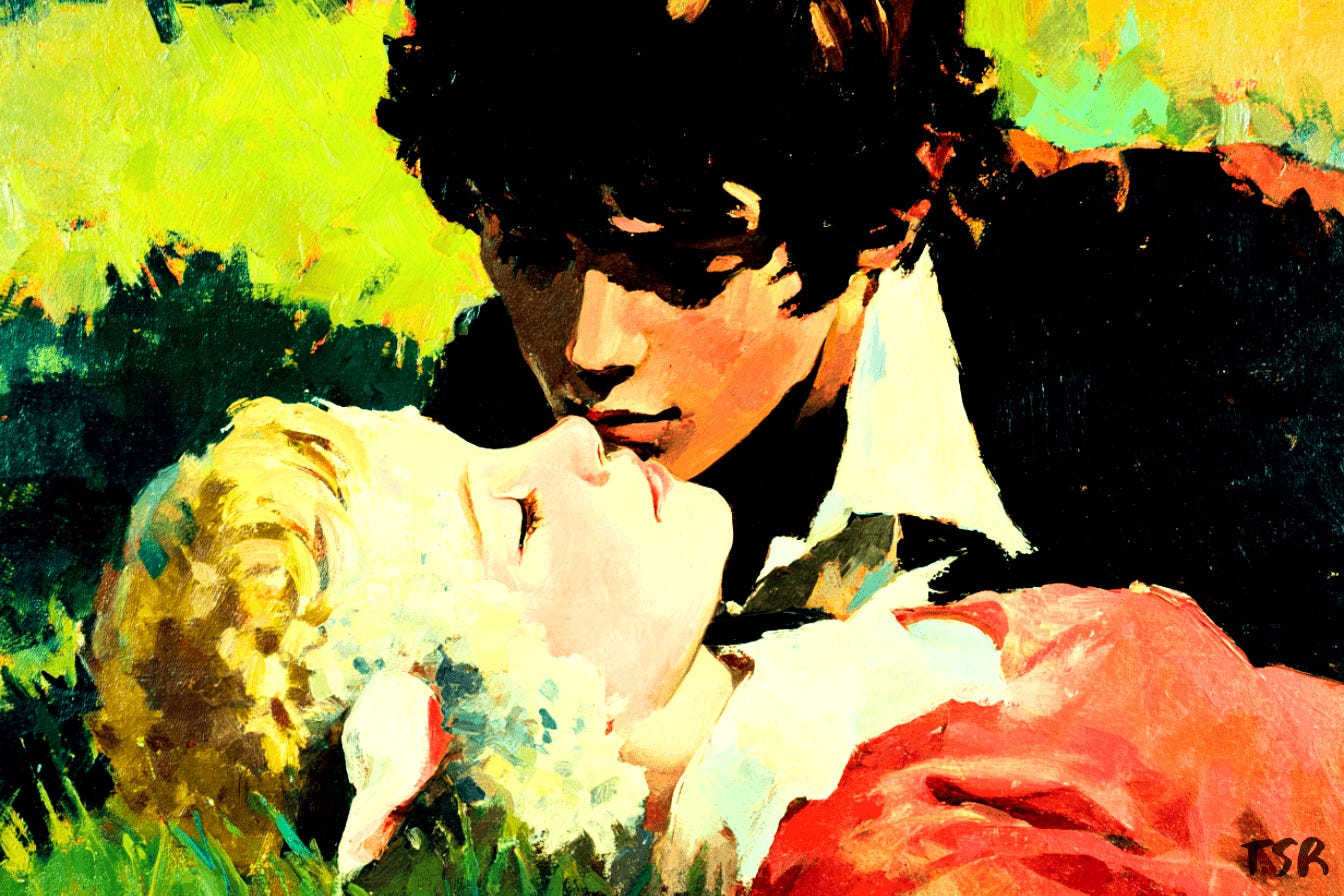Devour Me Tenderly: In the Hunger of 'The Carnivorous Lamb'
Nothing to confess
Too much love, like too much hate, doesn't need many words: it has no subtlety.
Some books only nod to transgression. Others live and breathe it. The Carnivorous Lamb inhabits the latter, daring us to keep reading. It feels like an unspeakable secret half-remembered from a dream: intimate, unsettling, and heartbreakingly sincere.
First published in 1975, the novel was written in French by Agustín Gómez-Arcos, a Spanish exile whose departure from Francoist Spain was both political and personal.
Even though his allegorical work gained notoriety for its taboo-breaking subject matter, what lingers fifty years later isn’t shock so much as a quiet reminder to look beyond provocation.
After all, what lies there is often far more embodied. In this case, tender—even holy. And in a world of carefully honed narratives, defiance naturally takes on the sharp edge of authenticity.
A Devotion That Refuses to Be Cleansed
At its core, The Carnivorous Lamb is about a boy's obsessive, lifelong love for his older brother, Antonio. This reciprocated passion isn’t suggested or hidden. It’s openly declared, physically shared, and rooted in a bond that begins in childhood.
But rather than treat the relationship as pathology or spectacle, Gómez-Arcos frames it as something elemental. Simply put, the boys’ love is rendered with an intensity that eclipses the hypocrisy of the world around them.
This is where the novel takes a decisive turn away from moral convention. While some readers might instinctively recoil at the subject matter, the emotional clarity with which it’s portrayed complicates that response.
Ignacio, the narrator, doesn't ask to be absolved. He speaks with heat, pain, and longing that feel as pure as they are forbidden in a world of strict moralities.
In contrast to the coldness of their mother, the conformity of their father, and the spiritual emptiness of a nation built on silence, this dangerous intimacy becomes something strangely beautiful.
Rather than punishing him for his feelings, Gómez-Arcos grants Ignacio his boyish humanity, which is as flawed and intense as it is unapologetic. He extends an invitation for us to witness the lives on the page, not judge or justify them. And so, we reach the heart of literature: subversion that compels reflection.
Exile, Repression, and Memory in the Flesh
To understand the emotional charge of The Carnivorous Lamb, it helps to remember the world Agustín Gómez-Arcos escaped. Born in 1933, he came of age under Franco’s authoritarian regime, a Catholic nationalist dictatorship that ruled Spain from 1939 to 1975, following the Spanish Civil War (1936-1939).
A priest is an enemy of society disguised as a sheep.
Franco’s Spain was built on terror as well as submission to the Church, family, and the state. Dissent was crushed, regional cultures were erased, and queer lives were treated as crimes to be punished or pathologies to be “corrected.”
Gómez-Arcos began his career as a playwright, but after facing repeated censorship, he left the country and turned to fiction, writing in French. That shift was a form of exile that carried into every line of his work—not just geographic or linguistic, but emotional and philosophical.
Interestingly, the Spain that shapes The Carnivorous Lamb is shown through the intimate rituals of repression rather than politics or policy.
It revolves around the atmosphere of unquestioned obedience, the suffocating weight of Catholic guilt—which the protagonists seem immune to—and the moralism passed down at the dinner table.
These forces play out within the family. There’s the mother’s obsession with contrived piety, the father’s hollow passiveness, and the social pressure to conform, marry, and reproduce.
The regime lives in institutions but also in private gestures, silences, and expectations. Rather than dissecting tyranny in the abstract, Gómez-Arcos shows how it infects language, love, and memory.
In that context, Ignacio's refusal to suppress his love for his brother, his pleasure, and his own way of living becomes its own quiet revolt. He simply speaks the truth of his life and refuses to apologise. And in a world built on denial, that kind of honesty carries the weight of political resistance.
Desire Without Euphemism in The Carnivorous Lamb

One of the most compelling aspects of the novel is how it handles sensuality as both content and texture. The language is ornate, lush, and often spiralling, but it rarely tips into indulgence.
Even in translation, the rhythm feels urgent and physical. The narrator’s voice winds itself around the reader, confessing in a tone that’s both vulnerable and controlled.
Whether you come as a lover or an executioner, I am ready to receive you.
The repetition of sentiments and longings feels like ritual or compulsion. Ignacio's desire becomes a kind of weather system in the book: sometimes suffocating, sometimes strangely serene, but always inescapable.
In short, the prose is deeply embodied—sensual in how it moves and breathes on the page. Not only does it not shy away from the messiness of erotic obsession, but it also refuses to collapse it into tragedy or trauma.
Ultimately, the love story at the core isn’t clean, and it isn’t liberating in the commercial sense, but it’s told without hesitation. That steadiness is what makes it unforgettable.
A Queerness That Doesn’t Seek Approval
In today’s literary landscape, queer stories are often framed by narratives of acceptance, resilience, or redemptive progress. Emerging from a time of more visceral confrontations with society’s pretences, The Carnivorous Lamb is none of those things.
It doesn’t ask to be included. It doesn’t tidy itself up for visibility. It’s queer in a way that remains dangerous—not because of who is loved, but because of how fearlessly that love is centred. Its refusal to moralise, resolve, or explain becomes its most radical gesture.
Even by today’s standards, The Carnivorous Lamb feels transgressive. Not necessarily because it wants to shock, but because it commits to telling a story that most readers will instinctively want to turn away from, yet find they can't. Everything beyond the novel's world begins to take on the sheen of artifice.
That’s where its power lies. In a landscape where queerness is often expected to soothe, this novel insists on being unsettling. Not only in content but in emotional honesty.
It holds nothing back: not its devotion, ugliness, or beauty. And in doing so, it opens a space few storytellers are willing to enter.
In the end, Gómez-Arcos gives us much more than a love story. He gives us a portrait of a person—and a country—shaped by silence, repression, and the aching need to break free. And that’s what stays with you: not just the intimacy, but the courage to name it.
The novel is available on Amazon and free to read on the Internet Archive.


